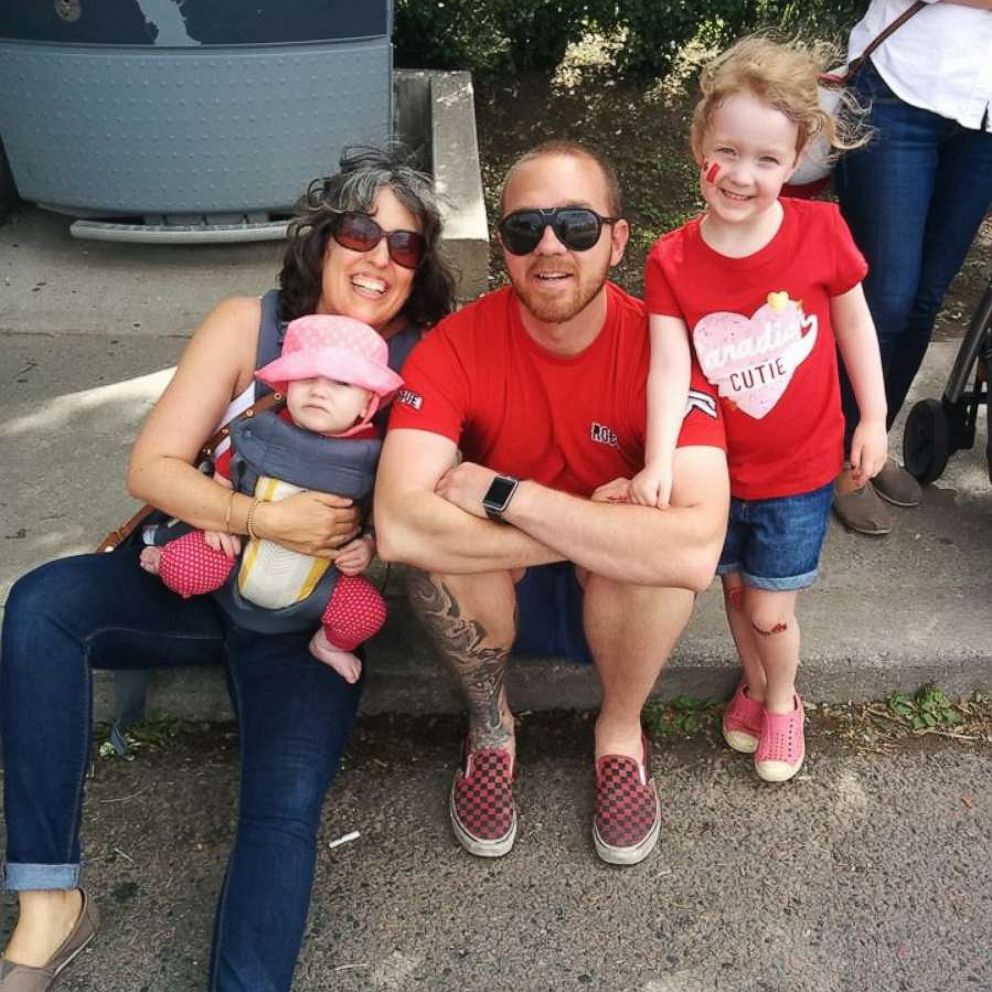Recovering addicts share astounding before-and-after photos and sober positivity on Instagram
"I said, 'I don't want to do this anymore. I don't want to die.'"
By 23, Tiffany Howell was in the depths of her addiction to alcohol and methamphetamine.
At the peak of her substance abuse, she had lost custody of her children and fell into prostitution.
"That was the very bottom. That's how bad it got for me," Howell, 29, told "Good Morning America." "I wasn't a good mother. I wanted to die, but I was scared to kill myself."
Today, Howell is six years sober and furthering her education.
"I have my kids, I'm a a home owner, I'm going to law school," she said. "I never knew my life could be this good or happy. I have peace, I have a self esteem. I have hope."
Howell, a mom of three living in Cottage Grove, Oregon, grew up in a drug and alcoholic home. She said it resulted in childhood trauma she wasn't sure how to address as a teen. So, she turned to substances.
"I needed more," Howell said. "I didn't like feeling emotion so I found a way to escape those emotions with alcohol and eventually drugs."
Howell had some run-ins with the law, and when money got low she turned to prostitution to pay for her drug habit.
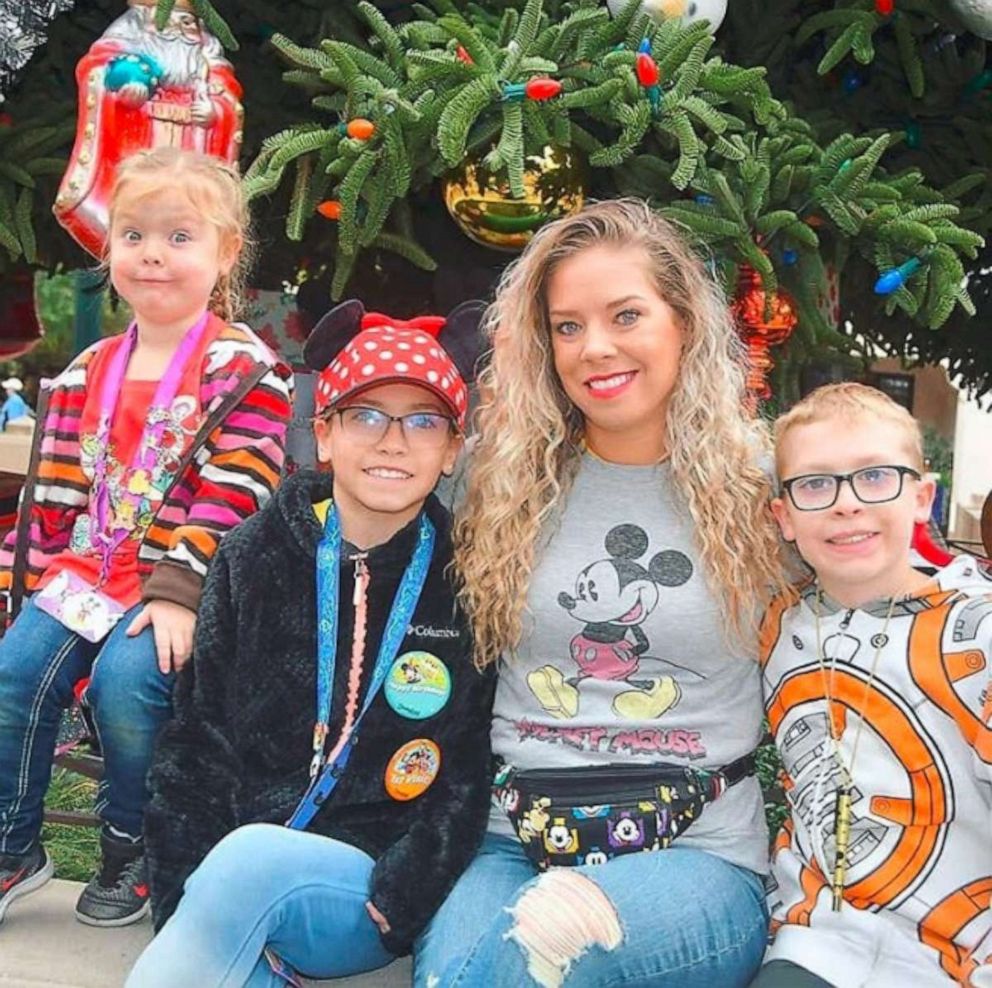
I never knew my life could be this good or happy. I have peace, I have a self esteem. I have hope.
"I just wanted things to end," she said. "The only alternative was to stop doing what i was doing."
When she first became sober, Howell attended three to four Alcoholics Anonymous (AA) meetings a day.
"I didn't go to treatment and I surrounded myself with people who were also sober. It was hard in the beginning. A lot of the things I went through sober, I would never think I could."
On Sunday, March 15, Howell officially celebrated six years of sobriety.
In 2019, she shared a mugshot side-by-side with her astounding transformation in present-day.
Howell said she posted the photos onto Instagram in hopes her experience could benefit others.
"When I first got sober I had so much shame," she said. "I lost my kids ,I had been into drugs, got arrested, was into prostitution -- felt there was no hope for me. I thought my life can not be good because of what I'd done."
"I hope my story inspires those people to have even an inkling of hope that their life can be wonderful."
Howell recently earned a bachelor's degree in business communications and criminal justice at Northwest Christian University in Eugene, Oregon.
She hopes to attend University of Oregon School of Law in the fall and follow in the footsteps of her late grandfather, Bill Howell, who was a criminal defense attorney.
Howell is one of many who are part of the sober positive movement on Instagram.
Hastags like #sober and #soberlife have millions of followers. There are now accounts titled Sober Movement, Sober Nation and Sober is Life--offering community to those in recovery, or trying to get clean.
Howell's photos were shared by the account Sober Motivation, which has over 21,000 followers and 332 posts.
The page's moderator, Brad McLeod of Ontario, Canada, launched Sober Motivation in 2018 to build a community.
"I hope it grows and lets people know they're not alone," McLeod, 32, told "GMA," adding he receives messages from people wanting to share their stories. "You never know some stranger with mental health issues, addiction or a convicted felon trying to improve their life -- maybe a movie here, or a movie there but there's so much shame in it."
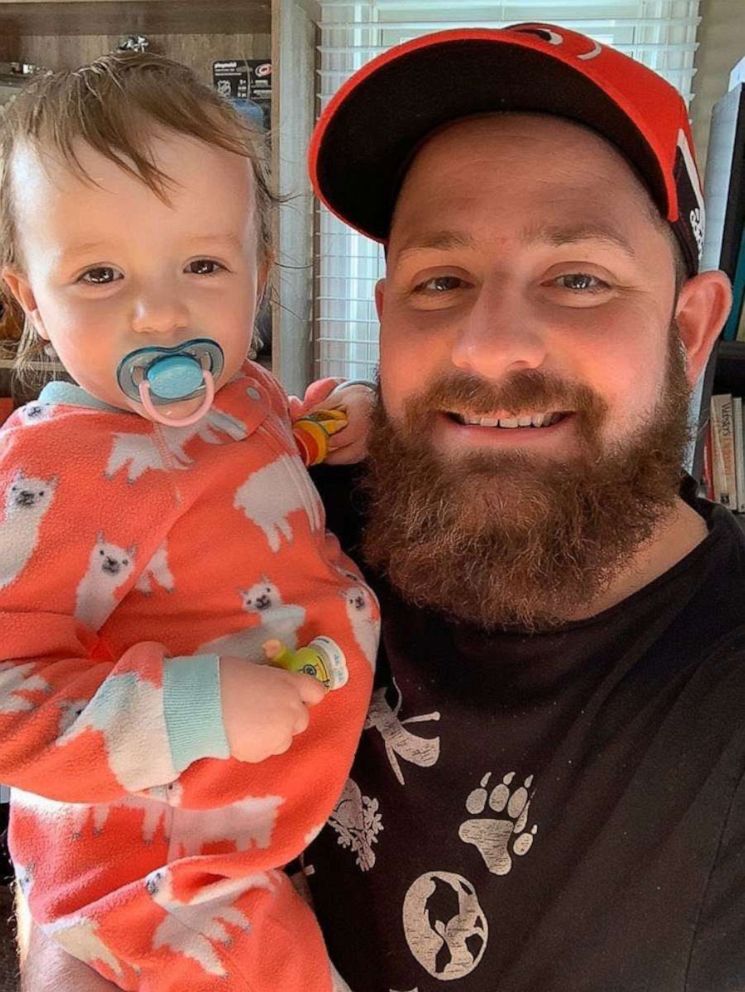
"There’s the occasional trolls but I don’t take it personally."
McLeod is 11 years clean after battling a heroin addiction.
At the time McLeod, a Canada citizen, was living in North Carolina, on a green card.
The life I have right now, for a guy like me, I never expected to live past 25. I didn't want to. So, it's phenomenal.
He had a long history of arrests and spent a year in jail in 2009 for three drug trafficking charges and was later deported as a result of his life choices.
"It cost my family close to $250,000 [between] detox programs and lawyers for my court case," McLeod said. "At the end of the day, I needed some accountability."
"I had to decide if that was the life I was going to be living or if I was going to go in another direction.”
McLeod became sober and graduated from Conestoga College in Ontario with a degree in addiction counseling.
He's now a proud parent, owns a digital media marketing business and gives a platform for those in recovery through his Instagram page.
"My daughters are 3 weeks old and 2 1/2," McLeod said. "I am married and bought a house. I used to live on my brother's couch. It was challenging, but it's been a blessing. People were so upset and disappointed in me. The life I have right now, for a guy like me, I never expected to live past 25. I didn't want to. So, it's phenomenal."
He went on, "Anybody can make a comeback. Just be a light out there in a dark world."
Through Sober Motivation, McLeod has connected with people across the U.S., like Andrew Addington-Strapp of Columbus, Ohio.
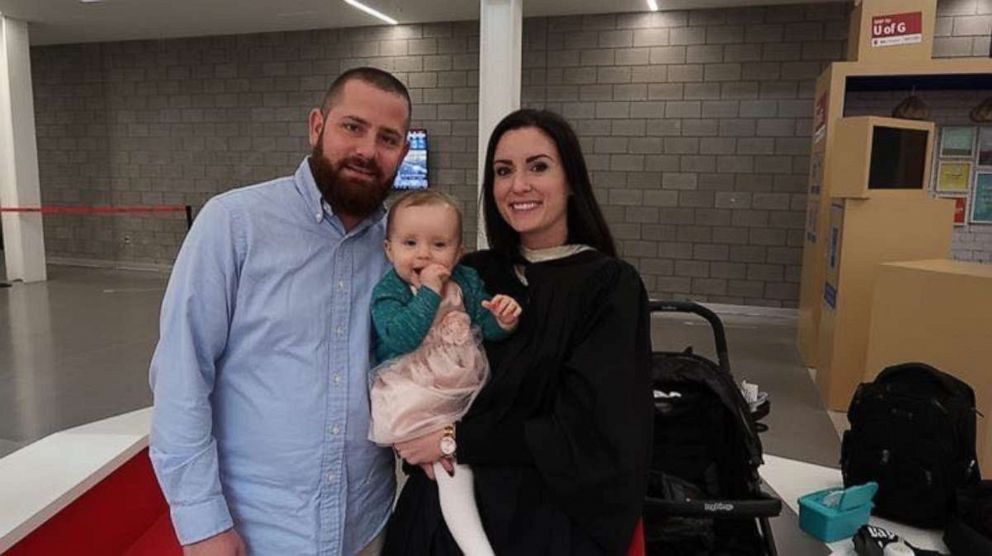
Addington-Strapp has been clean for two years. Abuse and his father's suicide led to a near decade-long alcohol and opioid addiction.
"The abuse and the trauma from him killing himself, I think it kind of manifested when I got older. I'd escape when I'd go out in college to drink," Addington-Strapp, 36, told "GMA."
"Sooner or later," he added, "I couldn't hold jobs. I would end up not showing up, or I'd call out so I could go get drugs. It was like my priority [number] one."
Two years back, Addington-Strapp celebrated his brother's bachelor party in Pittsburgh, Pennsylvania. Days later, he overdosed on heroin and fentanyl.
"That was the beginning of the end for me. It scared me to death," Addington-Strapp said. "I said, 'I don't want to do this anymore. I don't want to die.'"
Addington-Strapp went through a painful drug withdrawal, even experienced hallucinations, he said.
In April 2018, he checked into University of Pittsburgh Medical Center where he had seizures and remained for 8 days.
"I left on May 4, 2018.That was the day of my brother's wedding. I was the best man, which is wild."
Addington-Strapp obtained a sponsor to guide him through a 12-step recovery.
"The stuff I went through in retrospect was the biggest blessing I've had my whole life," he said. "It helps me have an attitude of being grateful and help people who have been where I've been."
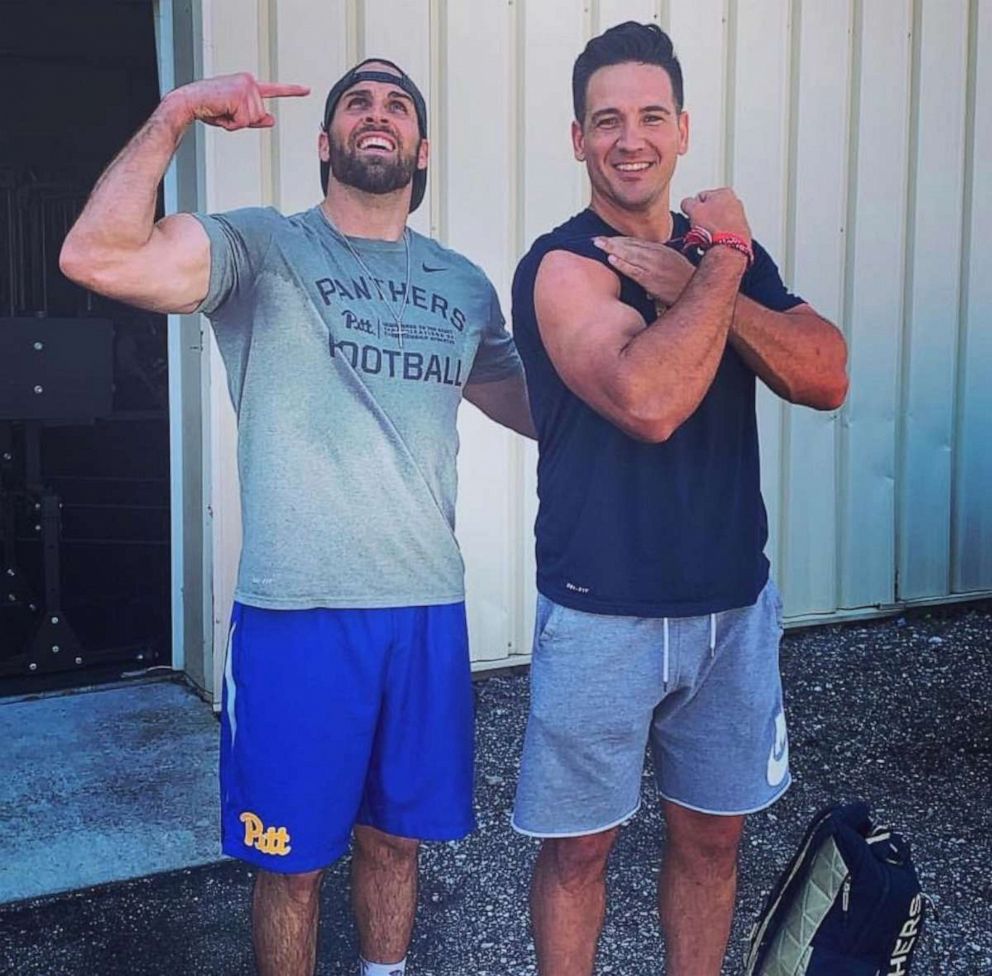
Addington-Strapp's transformation to sobriety was also shared on Instagram on McLeod's personal page.
A video shows Addington-Strapp convulsing in a hospital bed during drug withdrawal. The photo to the right of the footage features a much healthier version of him, today.
"I want someone in a bad place to see it and [think], 'There's a potential where I don't have to live like this anymore,'" he said of the image.
"Because, we all suffer from this core issue. To see someone that has the same issue you have, recover, share their life experiences, ups and downs and still stays sober, it gives people hope."
"It does get better. It gets a lot better."
Addington-Strapp now manages a fitness center.
He credits his family, especially his brother, Austin Addington-Strapp, for support before and after sobriety.
I said, 'I don't want to do this anymore. I don't want to die.
Dr. Janet Taylor is a psychiatrist at Centerstone of Florida and treats people with addiction.
She said people entering sobriety are advised to remain "self protected."
"When you're making that change, it's important to also change those you hung out with when you got high, or a song you used to listen to that could trigger that moment," Taylor told "GMA." "Paying attention to your schedule, people, places and things ... and knowing there's a lot of cues to trigger you is extremely important."
As for the sober positive community online, Taylor said the impact of before-and-after images could make a difference to people in recovery.
"It can help those who may be on edge, or in need of inspiration to keep them from using," she explained. "It could kind of light that fire for that next step in moving forward or [keep] from slipping back into a life that they don't want."
Taylor said counseling and sponsor groups could help addicts from returning to old habits like trying to self-medicate trauma, or current pain.
Taylor added that there are 12-step programs that work in accordance with Narcotics Anonymous, but first you need to "educate yourself, find support and find a health care provider. Treatment is even available for people who don't have insurance."
If you're struggling with addiction, the Substance Abuse and Mental Health Services Administration can help you locate a treatment facility. Their helpline is free, confidential and open 24 hours a day: 1-800-662-HELP (4357).
